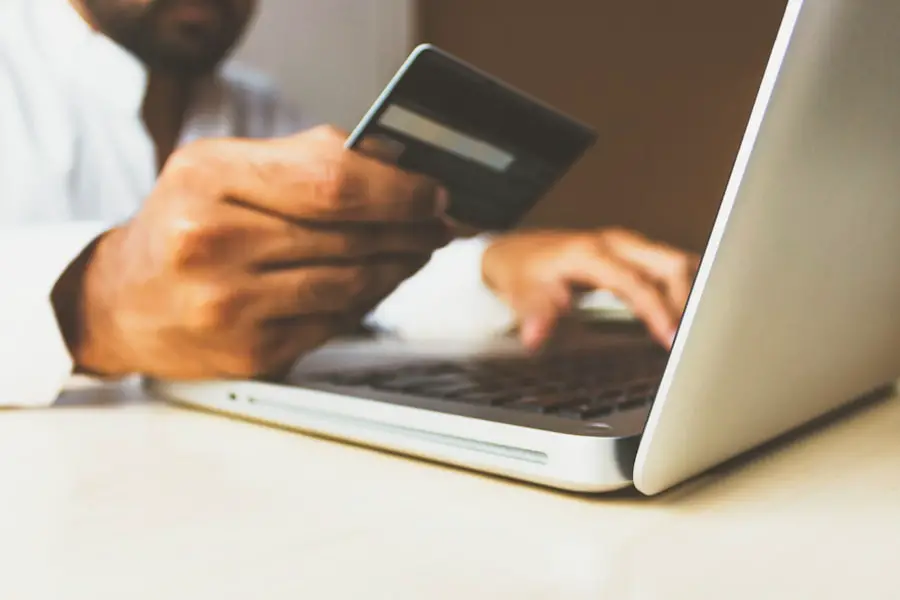In the digital age, the importance of using secure and trusted websites cannot be overstated. When engaging in online transactions, whether for shopping, banking, or sharing personal information, it is crucial to ensure that the website you are using is legitimate and secure. A primary indicator of a secure website is the presence of HTTPS in the URL, which signifies that the site uses encryption to protect data transmitted between your browser and the server.
This encryption is vital for safeguarding sensitive information such as credit card numbers, addresses, and personal identification details from potential cybercriminals. Moreover, reputable websites often display security certifications or seals from recognized organizations. These seals indicate that the site has undergone rigorous security checks and adheres to industry standards for protecting user data.
For instance, sites that are PCI DSS compliant have met the Payment Card Industry Data Security Standards, which are essential for any business that processes credit card transactions. Before making a purchase or entering personal information, take a moment to verify these security features. Additionally, reading user reviews and checking for any reported security breaches can provide further assurance about the site’s reliability.
Key Takeaways
- Use secure and trusted websites for online shopping to protect your personal and financial information.
- Research the seller or company before making a purchase to ensure their legitimacy and reliability.
- Be cautious of deals that seem too good to be true, as they may be scams or counterfeit products.
- Use secure payment methods such as credit cards or PayPal to protect against fraud and unauthorized charges.
- Keep your personal information safe by avoiding sharing sensitive details unless necessary and ensuring the website has proper security measures in place.
Research the Seller or Company
Before committing to a purchase, conducting thorough research on the seller or company is a prudent step that can save you from potential scams or unsatisfactory experiences. Start by looking for customer reviews and ratings on independent platforms. Websites like Trustpilot or Better Business Bureau can offer insights into the experiences of other consumers with the seller.
Pay attention to both positive and negative reviews, as they can provide a balanced view of the company’s reputation. A pattern of complaints regarding product quality, customer service, or delivery issues should raise red flags. In addition to customer feedback, it is beneficial to investigate the company’s history and background.
Check how long they have been in business and whether they have a physical address listed on their website. A legitimate company typically provides clear contact information, including a phone number and email address for customer support. If a seller is evasive about their location or contact details, it may indicate a lack of transparency and trustworthiness.
Furthermore, researching the seller’s presence on social media can also provide insights into their engagement with customers and their overall credibility.
Be Cautious of Deals That Seem Too Good to Be True

In the realm of online shopping, deals that appear too good to be true often are just that—too good to be true. Scammers frequently lure unsuspecting consumers with offers that promise significant discounts or exclusive deals on popular products. For instance, if you come across a luxury item being sold at a fraction of its retail price, it is essential to approach such offers with skepticism.
Use Secure Payment Methods
| Secure Payment Method | Percentage of Users |
|---|---|
| Credit Card | 65% |
| PayPal | 20% |
| Apple Pay | 10% |
| Google Pay | 5% |
When making online purchases, selecting secure payment methods is paramount in protecting your financial information. Credit cards are generally considered one of the safest options for online transactions due to their built-in fraud protection features. Most credit card companies offer zero liability policies, meaning you won’t be held responsible for unauthorized charges if your card information is compromised.
Additionally, using virtual credit cards or payment services like PayPal can add an extra layer of security by keeping your actual card details hidden from merchants. Another option gaining popularity is cryptocurrency, which offers anonymity and security through blockchain technology. However, while cryptocurrencies can provide certain advantages in terms of privacy, they also come with risks due to their volatility and lack of consumer protections compared to traditional payment methods.
Regardless of the payment method chosen, always ensure that you are on a secure website before entering any financial information. Look for indicators such as padlock icons in the browser’s address bar and verify that the site uses HTTPS encryption.
Keep Your Personal Information Safe
In an era where data breaches and identity theft are prevalent concerns, safeguarding your personal information is more critical than ever. One of the first steps in protecting your data is to limit the amount of personal information you share online. When creating accounts on various websites, only provide the necessary details required for transactions.
Avoid oversharing information such as your full address or phone number unless absolutely necessary. Additionally, employing strong passwords is essential in maintaining your online security. A robust password should include a mix of uppercase and lowercase letters, numbers, and special characters while avoiding easily guessable information like birthdays or common words.
Utilizing password managers can help you generate and store complex passwords securely without the need to remember each one individually. Furthermore, enabling two-factor authentication (2FA) wherever possible adds an extra layer of protection by requiring a second form of verification before granting access to your accounts. Regularly monitoring your financial statements and online accounts for any suspicious activity is also crucial in maintaining your personal security.
If you notice any unauthorized transactions or changes to your accounts, report them immediately to your financial institution or service provider. Being proactive about your online safety can significantly reduce the risk of falling victim to identity theft or fraud. In conclusion, navigating the online marketplace requires vigilance and informed decision-making.
By utilizing secure websites, researching sellers thoroughly, being cautious of unbelievable deals, opting for secure payment methods, and safeguarding personal information, consumers can significantly enhance their online shopping experience while minimizing risks associated with cyber threats.
When shopping online, it is important to be aware of potential scams and protect yourself from falling victim to fraudulent activities. One helpful resource to refer to is an article on terms and conditions that can provide valuable information on what to look out for when making online purchases. By understanding the terms and conditions of a website, you can better protect yourself from potential scams and ensure a safe shopping experience.
FAQs

What are common online shopping scams to be aware of?
Common online shopping scams include fake websites, counterfeit products, phishing emails, and fraudulent sellers on online marketplaces.
How can I verify the legitimacy of an online seller or website?
You can verify the legitimacy of an online seller or website by checking for customer reviews, looking for secure payment options, and confirming contact information and physical address.
What are some red flags to look out for when shopping online?
Red flags to look out for when shopping online include deals that seem too good to be true, unfamiliar or suspicious websites, and requests for payment through unconventional methods.
What should I do if I suspect I have been scammed while shopping online?
If you suspect you have been scammed while shopping online, you should report the incident to the relevant authorities, contact your bank or credit card company, and consider seeking legal advice if necessary.
How can I protect my personal and financial information while shopping online?
You can protect your personal and financial information while shopping online by using secure and reputable websites, avoiding public Wi-Fi for transactions, and regularly monitoring your bank and credit card statements for any unauthorized charges.
